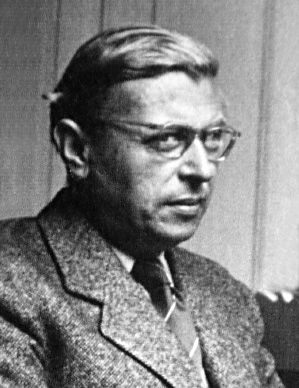
Philosophers: 1: Jean-Paul Sartre
The Philosophy of Jean-Paul Sartre
Jean-Paul Sartre is one of the most influential and widely read philosophers of the twentieth century. His work has had an enormous impact on the development of modern philosophy and has had a profound influence on contemporary thought. Sartre’s philosophy is a complex and comprehensive system of thought that explores the nature of existence, freedom, and responsibility.
His
Existentialism
Sartre’s philosophy is based on the concept of existentialism, which is a belief that individuals are responsible for their own actions and must accept the consequences of those actions. According to Sartre, individuals are completely free to choose their own paths in life and have the responsibility to make their own choices. He argued that this freedom is a fundamental part of our existence and should be embraced rather than denied. Sartre argued that individuals have an inherent responsibility to choose their own values and to act according to those values. He believed that this responsibility is at the root of our freedom and that it is ultimately what makes us human. He argued that we must accept our freedom and use it responsibly in order to create meaning in our lives, believing we should not rely on external factors, such as religion or tradition, to dictate our choices.
Being And Nothingness
Jean-Paul Sartre’s philosophical masterpiece, Being and Nothingness, is a seminal work of existentialism. Published in 1943, this book is considered his magnum opus and is one of the foundational texts of existentialism. In Being and Nothingness, he argues that human consciousness is characterised by an inherent state of nothingness, or what he calls “nihilation.” He argues that humans are not determined by external forces, but by our own choices and actions. We are thus, fundamentally, responsible for our own lives and existences. According to Sartre, this fundamental state of nothingness is a condition of human existence inextricably linked to our freedom. However, he also argues this is a source of anguish and despair. He claims anguish is caused by the awareness of our own mortality, and the impossibility of finding comfort in traditional forms of consolation. In this sense, Sartre argues that our awareness of nothingness is the root of our own angst, and of our existential suffering.
Sartre’s discussion of nothingness is not meant to be depressing or nihilistic, though. In fact, he says the awareness of our freedom and responsibility is what allows us to create meaning in our lives. He argues that this awareness makes us capable of making meaningful choices in life, and that it is the source of our creativity and our sense of purpose.
A Continuing Influence
The philosophy of Jean-Paul Sartre is a complex and comprehensive system of thought that has had a profound influence on contemporary thought. His ideas about freedom and responsibility are remain relevant and continue to shape modern philosophy.